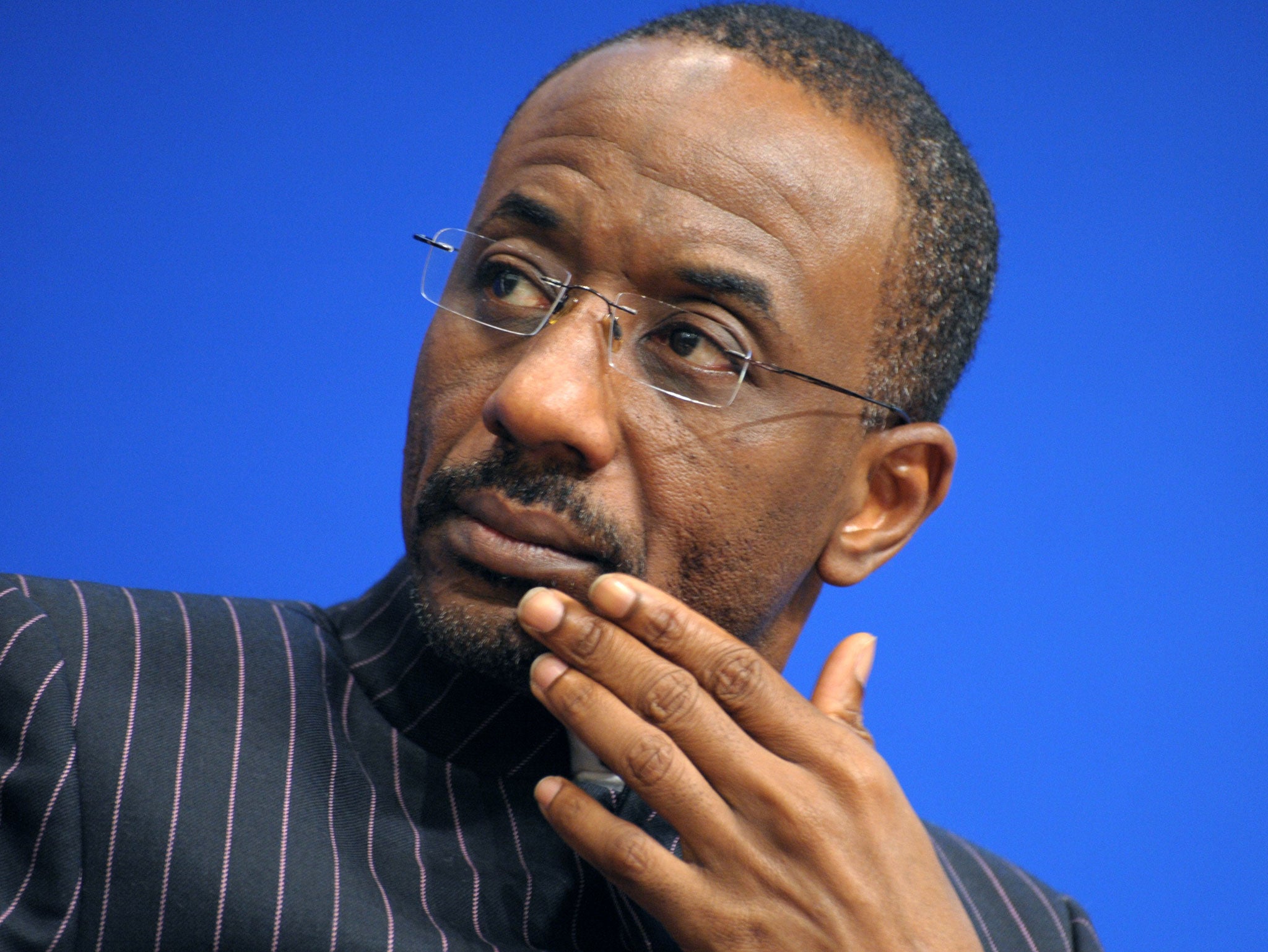Nigeria’s suspended central banker overstepped the mark, says his deputy

Your support helps us to tell the story
From reproductive rights to climate change to Big Tech, The Independent is on the ground when the story is developing. Whether it's investigating the financials of Elon Musk's pro-Trump PAC or producing our latest documentary, 'The A Word', which shines a light on the American women fighting for reproductive rights, we know how important it is to parse out the facts from the messaging.
At such a critical moment in US history, we need reporters on the ground. Your donation allows us to keep sending journalists to speak to both sides of the story.
The Independent is trusted by Americans across the entire political spectrum. And unlike many other quality news outlets, we choose not to lock Americans out of our reporting and analysis with paywalls. We believe quality journalism should be available to everyone, paid for by those who can afford it.
Your support makes all the difference.EXCLUSIVE: The suspended whistleblower governor of the Nigeria's central bank may have to think again if he hopes senior former colleagues will rally to his defence.
Lamido Sanusi was suspended last month by the country's president after making explosive allegations about embezzlement on a massive scale at the state oil company.
The events alarmed investors and created a sense of scandal around the presidency of Goodluck Jonathan. He suspended Mr Sanusi citing "financial recklessness and misconduct" at the central bank and ordered an investigation into him, but many in Nigeria suspect the governor's fate was linked to the claims he had made on an allegedly missing $20bn of oil revenue.
This week, speaking for the first time about the affair, one of the Bank of Nigeria deputy governors, Kingsley Moghalu, was keen to distance himself from his former boss and made clear that he felt Mr Sanusi had overstepped his authority.
Discussing the Sanusi affair in the sidelines of the Africa CEO Forum in Geneva, he told the Independent: "The lesson that can be drawn from it is the limits of central bank independence... There is a very thin line between central bank independence and... political posturing."
In support of President Jonathan's government, he said: "The president of Nigeria and the government of Nigeria have never in my knowledge interfered with the function of the central bank. And therefore I think we need to give them credit for respecting [its] independence."
He added: "The governor began to make very damaging public allegations against the government... allegations that have not been proven, after the president had sent him a presidential query about the finances of the central bank. The government has given a reason for the suspension and that was... to enable an investigation into the allegations against him."
Bizarrely preferring not to mention Mr Sanusi by name, he went on to say: "Somebody in the central bank was taking on an activist political role. That is not our function. Central banks over the world have clear functions and in your country [Britain] and any other civilised country I know that central bank governors operate within certain expectations and constraints and respect those expectations and constraints."
He added that the central bank had managed to contain the market fallout from the president's actions, pointing out that he and his fellow deputy governors were in agreement with Dr Sanusi's internationally well regarded position as an inflation hawk in favour of high interest rates to keep a lid on prices.
"Life is back to normal," he claimed.
However, with the ghost of an investigation looming large over the most powerful banker in the country, and the suspicion among many that he was suspended for speaking out, analysts say Nigeria is far from being in a normal state.
The deputy governor Moghalu was named as a possible sucessor to Mr Sanusi but in the event the president selected a non-central banker Godwin Emefiele as the governor elect.
Observers said he would be far less outspoken than the high-born Mr Sanusi, a well-connected Muslim and Islamic scholar from the north of the country whose father was Emir of the ancient city of Kano.
Mr Moghalu, who took his PHD at the London School of Economics and is the son of a Nigerian diplomat to Washington DC, is one of three deputy governors of the central bank and said he had no plans to resign. He vehemently denied being under investigation himself, or being accused of any wrongdoing by the report into Mr Sanusi, although newspapers in Nigeria citing the document quote it as recommending the president "cause the governor and the deputy governors to cease from holding office in the CBN [Central Bank of Nigeria.]"
Mr Sanusi earlier this week requested the President reverse his suspension, saying that every one of the allegations levelled against him and the central bank under his leadership were false.
Join our commenting forum
Join thought-provoking conversations, follow other Independent readers and see their replies
Comments